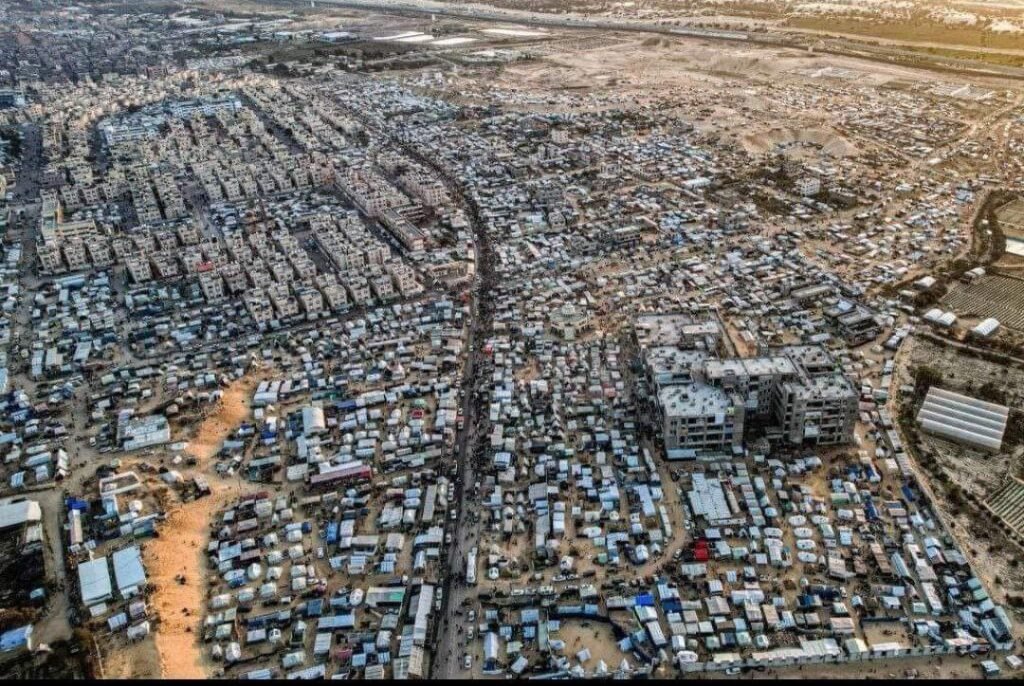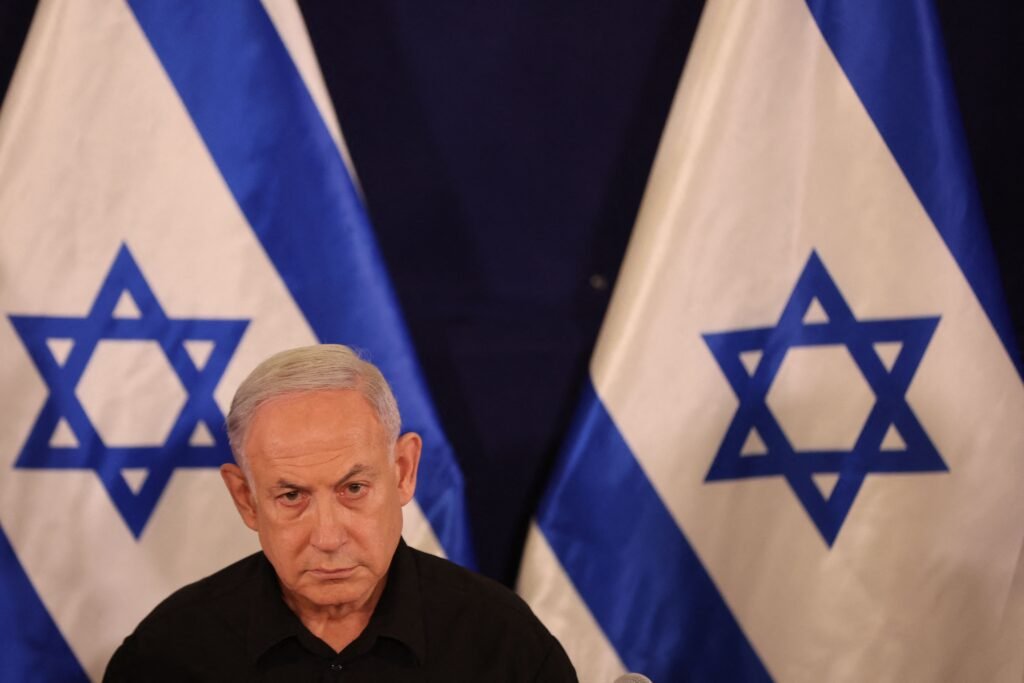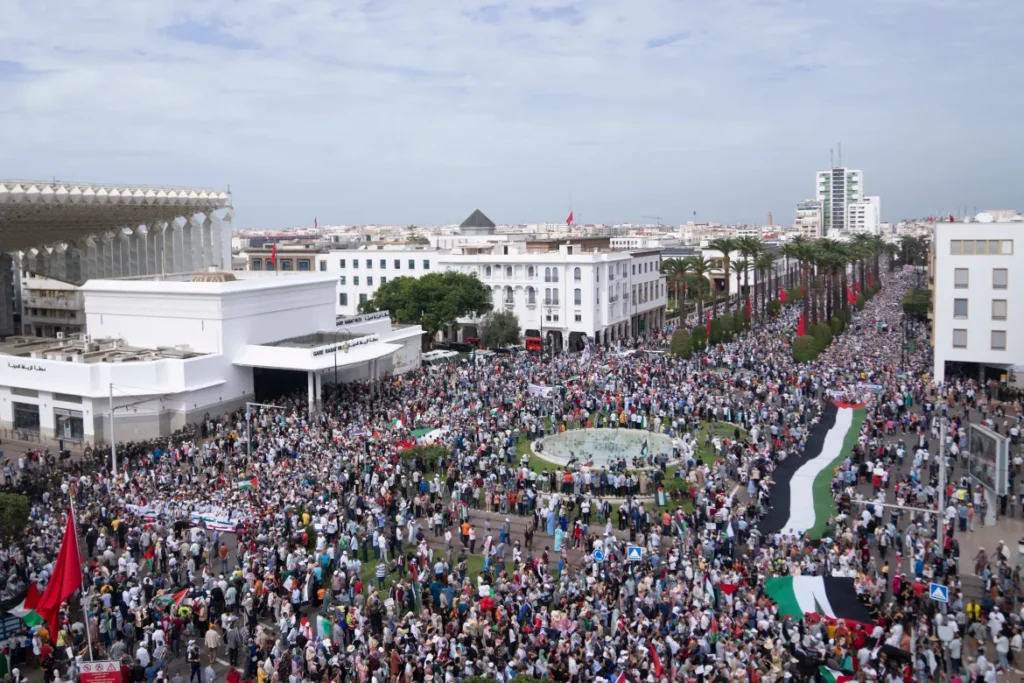Israeli Prime Minister Benjamin Netanyahu is escalating his military actions, pushing forward with a strategy that has no clear path for retreat. With each new offensive, the risk of a wider Middle Eastern conflict looms larger, as regional unrest grows. Netanyahu’s planned invasion of Rafah, a city crowded with Palestinians seeking refuge from the ongoing assaults, may soon become the flashpoint that ignites a wider catastrophe.
Amid diplomatic attempts to reach a ceasefire, Netanyahu has openly dismissed negotiations, likely due to the personal stakes he faces. His grip on power, already strained by corruption cases and internal pressures, depends heavily on maintaining an image of uncompromising strength in Gaza. Thus, while representatives from Hamas have traveled to Cairo to discuss possible mediation, Netanyahu has declared, “We’re going to do it,” implying that he cannot afford a peaceful resolution that might appear as backing down.

The Desperation in Rafah
With around 1.5 million Palestinians gathered in Rafah, a city designed for only 250,000, the humanitarian crisis has reached unprecedented levels. Those who initially fled from Gaza City and Khan Younis now find themselves trapped near the Egyptian border, facing an uncertain and dangerous future. Israeli officials, including Netanyahu, have suggested that these civilians return to the north — an area already decimated by bombings and lacking essential infrastructure. The desperation is palpable, with families like that of Thaer Mohamed, who fled Khan Younis only to face bombings in Rafah, now forced to make life-and-death decisions about their next move.
The dangers of movement in Gaza are stark. Recently, the Israeli Defense Forces (IDF) forcibly evacuated hundreds from Nasser Hospital in Khan Younis, resulting in casualties from sniper fire.
For those attempting to move north, the path is fraught with active war zones and destroyed infrastructure, with threats of unexploded bombs and a lack of basic resources.
Global Indifference and Media Contradictions
Western governments, who have armed Israel and abstained from calling for a ceasefire, seem unfazed by the death toll among Palestinians. Their priority lies not with human rights but with the stability of regional regimes friendly to their interests. Even though the Israeli military has killed thousands, the U.S. and its allies remain steadfast in their support, much as they did during the Yemeni conflict, where Saudi-led bombings caused hundreds of thousands of deaths.
Recently, Western media outlets like the BBC have started covering the suffering in Gaza more openly, producing reports on the conditions faced by civilians under Israeli attack. Yet, these stories still come with caveats, often adding disclaimers like “according to the Hamas-run Ministry of Health,” a tactic implying the figures might be inflated. Meanwhile, the media dutifully reports IDF statements denying any deliberate targeting of civilians.
This selective narrative reflects the West’s reluctance to pressure Netanyahu into halting the attacks. Instead, by carefully managing public perception, Western media aim to balance exposing some truths while allowing Israel to shape the overall message.
Israel’s Internal Political Climate
The situation within Israel mirrors the country’s polarized stance. Most Israelis, under a media blackout on the realities of Gaza’s suffering, overwhelmingly support a “total victory” over Hamas. The trauma of recent attacks is often compared to the Holocaust, a narrative that Netanyahu has amplified, positioning Arabs as existential threats to Jewish survival. This climate of fear and dehumanization has rallied support for Netanyahu, even as polls indicate his popularity is slipping.
Amid this turmoil, a far-right agenda has gained traction. Ideas once considered fringe, such as reestablishing Israeli settlements in Gaza, are now mainstream, with ministers like Itamar Ben-Gvir advocating for resettlement as a solution for “security.”

Recent conferences on this topic drew significant attendance, including prominent officials. This resettlement push is part of a broader plan to displace Palestinians, and surveys show rising public support for such measures, reflecting a shift within Israeli society toward far-right policies.
The Regional Response and Threat of a Wider Conflict
The threat of a full-scale invasion of Rafah has provoked alarm from neighboring states. Egypt, under President Abdel Fattah Al-Sisi, has warned that an intensified humanitarian crisis could jeopardize its peace treaty with Israel. While Al-Sisi has historically cooperated with Israel, containing Palestinian movement at the border, the sight of Palestinians suffering just beyond the frontier has fueled public outrage within Egypt. Al-Sisi, sensing the potential for domestic upheaval, has issued warnings but is constrained by his own repressive policies.
Moreover, Al-Sisi’s reluctance to allow large numbers of Palestinian refugees into Sinai underscores his concerns about the destabilizing effects of a prolonged displacement. Just as Palestinian camps in Lebanon in the 1970s became focal points for resistance, similar camps in Egypt could embolden a new generation of Palestinians determined to reclaim their homeland.
With pressure mounting, Egypt has urged Hamas to consider ceasefire options, fearing that the flames of conflict in Gaza could spread throughout the region. Other neighboring regimes, including Jordan, are also on edge, aware that public sentiment could ignite mass protests or even uprisings, reminiscent of the Arab Spring.

A Global Call to Action
For Western governments, the unfolding crisis is a problem of their own making. Their decades of support for occupation, suppression, and militarization in the region have created a volatile environment ripe for rebellion. As the situation escalates, global solidarity movements emphasize that the ultimate solution lies in dismantling these oppressive structures.
For those watching from afar, the plight of Gaza may seem distant, but the implications are global. If unchecked, the escalation risks broader conflict, and each day of inaction further entrenches the conditions for violence. International solidarity, rooted in a collective struggle against injustice, remains essential for challenging not only the occupation in Palestine but also the systems of oppression worldwide. To make real change, grassroots movements must continue organizing, fighting for a future free from the cycle of occupation and conflict.


